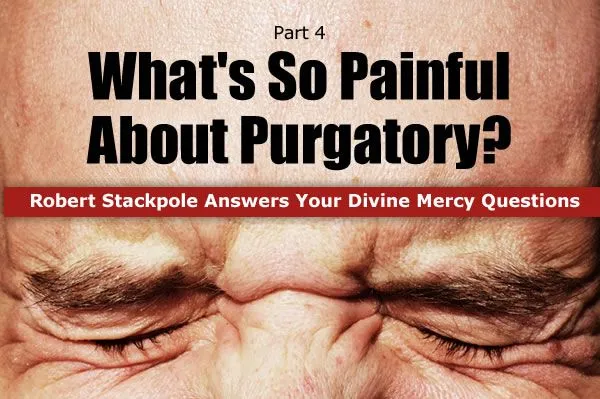Part 4: What's So Painful About Purgatory?

EDITOR'S NOTE: The following is part 4 of Dr. Robert Stackpole's response to a Protestant student in one of his theology classes who recently asked him to defend the Catholic doctrine of purgatory. Read part one, part two, and part three.
By Dr. Robert Stackpole, STD
Many saints of the Church testify that the Lord revealed to them that the deepest suffering of the souls in purgatory comes from longing for union with God. Father Kenneth Baker, SJ, sums up this testimony in his book Fundamentals of Catholicism (vol. 3, p. 375):
The souls in Purgatory ... know for certain that they are saved; in this they rejoice. But since they need cleansing they are separated from God for a time. This separation is most painful to them, since their whole being longs to be united with God.
Take, for example, the testimony of St. Catherine of Genoa (1447-1510):
God inspires the soul in purgatory with so ardent a movement of devoted love that it would be sufficient to annihilate her were she not immortal. Illumined and inflamed by pure charity, the more she loves God, the more she detests the least stain of sin that displeases Him, the least hindrance that prevents her union with Him.... [She is] impelled by the impetuosity of the love which exists between God and herself, in order that she might be the sooner delivered from all that separates her from her sovereign God.
This same understanding of the suffering of the souls in purgatory was revealed to St. Faustina, too, the great Apostle of Divine Mercy, as recorded in her Diary:
I saw my Guardian angel who ordered me to follow him. In a moment I was in a misty place full of fire in which there was a great crowd of suffering souls. They were praying fervently, but to no avail, for themselves; only we can come to their aid. The flames which were burning them did not reach me at all. My Guardian Angel did not leave me for an instant. I asked these souls what their greatest suffering was. They assured me in one voice that their greatest torment was longing for God. (20)
The vision that St. Faustina had of souls suffering in the "flames" of purgatory (which, as we said last week, must refer to a purely spiritual "fire," because the souls in purgatory do not receive their risen, physical bodies until the final Judgment Day) may simply be a symbolic way of expressing their painful longing for God. The "fire" of longing for God in their hearts must be what purifies them of any remaining attachment to sin. It must be what prepares them for final union with Christ in heaven. And surely, all this happens within them by the power of the Holy Spirit, who is described in the New Testament as the "fire" that came down upon the Church at Pentecost, the fire that St. John of the Cross once referred to as "The Living Flame of Love."
It seems clear that God did not unveil this to his saints primarily in order to frighten them (or us!) about the fires of purgatory. Rather, He revealed these mysteries to the Church in order to fill us with hope, that even if our loved ones died with just a tiny spark of true faith and love in their hearts, the God of mercy can fan that spark into flame and find a way home to heaven for them, too. Moreover, He revealed the state of the souls in purgatory to us to fill us with compassion for them, so that we would be moved to come to their aid. The Catholic Church teaches that to help the souls suffering in purgatory by prayer and other good works is an act of the most sublime charity. As the Catechism of the Catholic Church tells us in entry 1032, the Church "commends almsgiving, indulgences and works of penance undertaken on behalf of the dead," and the Catechism quotes St. John Chrysostom (344-407) in this regard as well:
Let us help and commemorate them. If Job's sons were purified by their father's sacrifice, why would we doubt that our offerings for the dead bring them some consolation? Let us not hesitate to help those who have died, and to offer our prayers for them.
According to St. Augustine, "One of the holiest works, one of the best exercises of piety that we can practice in this world, is to offer sacrifices, alms, and prayers for the dead" (Homily 16).
Nothing could be easier for us than to include this daily intention as part of our spiritual life. Here is a simple way to do it: Every time you suffer some cross or misfortune, offer it up to our merciful Savior in words borrowed from the traditional Morning Offering: "Merciful Jesus, I offer you this cross in union with the Holy Sacrifice of the Mass throughout the world, for all the intentions you had on Your Heart in Your agony and passion, especially for the conversion of sinners, in reparation for my own sins, for the relief of the souls suffering in purgatory, and for holy Father's intentions for this month."
Another way to do it is to pray at every Mass for the souls suffering in purgatory, "especially for those suffering the longest, and who are most forgotten by their loved ones on earth."
As Fr. Baker pointed out (in the quotation above), let us also not forget the joy of the souls in purgatory. Theirs is not a state of unmitigated longing and penitential sorrow. Rather, souls in the state of purgatory rejoice in the assurance that their process of purification will inevitably lead them to the glorious vision in heaven of the One they love so much. Saint Francis De Sales (1567-1622), for example, wrote that just as the pains of purgatory are severe, so the interior satisfaction and bliss enjoyed by the souls there must surpass anything we can imagine. How wonderful it must be for them when they feel themselves gradually being spiritually healed, gradually being freed from their remaining moral debt to God, and gradually drawing nearer and nearer to the joyful vision of the Blessed Trinity!
Let us close this exploration of purgatory with two quotations that probably capture the heart of this mystery as well as human words can express.
First, many years ago our own Fr. Seraphim Michalenko, MIC, wrote the following meditation which holds together in a few paragraphs the paradox of merciful love and justice, suffering and joy, all included in the great mystery of purgatory:
To whatever extent we become conscious, during our earthly lives, of our inability to rid ourselves completely of whatever blocks us from intimate union with God, we feel [spiritual] pain. We experience a taste of "purgatory," recognizing how perfectly God loves us, and how imperfectly we love Him in return.
In purgatory this pain is heightened, lifted in a sense to infinity, by the Divine Light that reveals to us at once the infinity and purity of Love, and the full extent of our inordinate self-love.
We are filled with longing for God, whom we now, more than ever before, realize is the only One who can bring us to the fullness of joy. And we suffer the pain of separation from the object of our longing, knowing that it is a separation caused by our own self-centeredness.
But although this is a very real and intense form of suffering, it yet carries with it a character of "sweetness and hope" which we can call purgatorial joy! This joy of souls is the result of having trustingly handed themselves over to God and accepted the purification that arises from their love and longing as their misery truly meets His mercy.
Purgatory is our meeting with Christ who loves us, and of our loving acceptance of His pardoning love. It is our passage to holiness. It is not yet heaven, but it is a definite way to it, since the love of God underlies the purifying suffering of souls. ... The souls in purgatory already definitely belong to God and nothing can separate them from Him.
The second quote certainly had nothing to do with purgatory when it was first written, because it was penned by an 18th century Protestant hymn writer, Charles Wesley. Nevertheless, it sums up beautifully the heart's longing of all souls in the state of purgation — both in this life, and the life to come:
Finish then Thy new creation
Pure and spotless let us be;
Let us see Thy great salvation
Perfectly restored in Thee;
Changed from glory into glory
Till in heaven we take our place,
Till we cast our crowns before Thee
Lost in wonder, love and praise!
Learn about the efforts of the Marian Fathers of the Immaculate Conception to assist the Holy Souls in Purgatory.
Robert Stackpole, STD, is director of the John Paul II Institute of Divine Mercy. His latest book is Divine Mercy: A Guide from Genesis to Benedict XVI (Marian Press). Got a question? E-mail him at [email protected].
